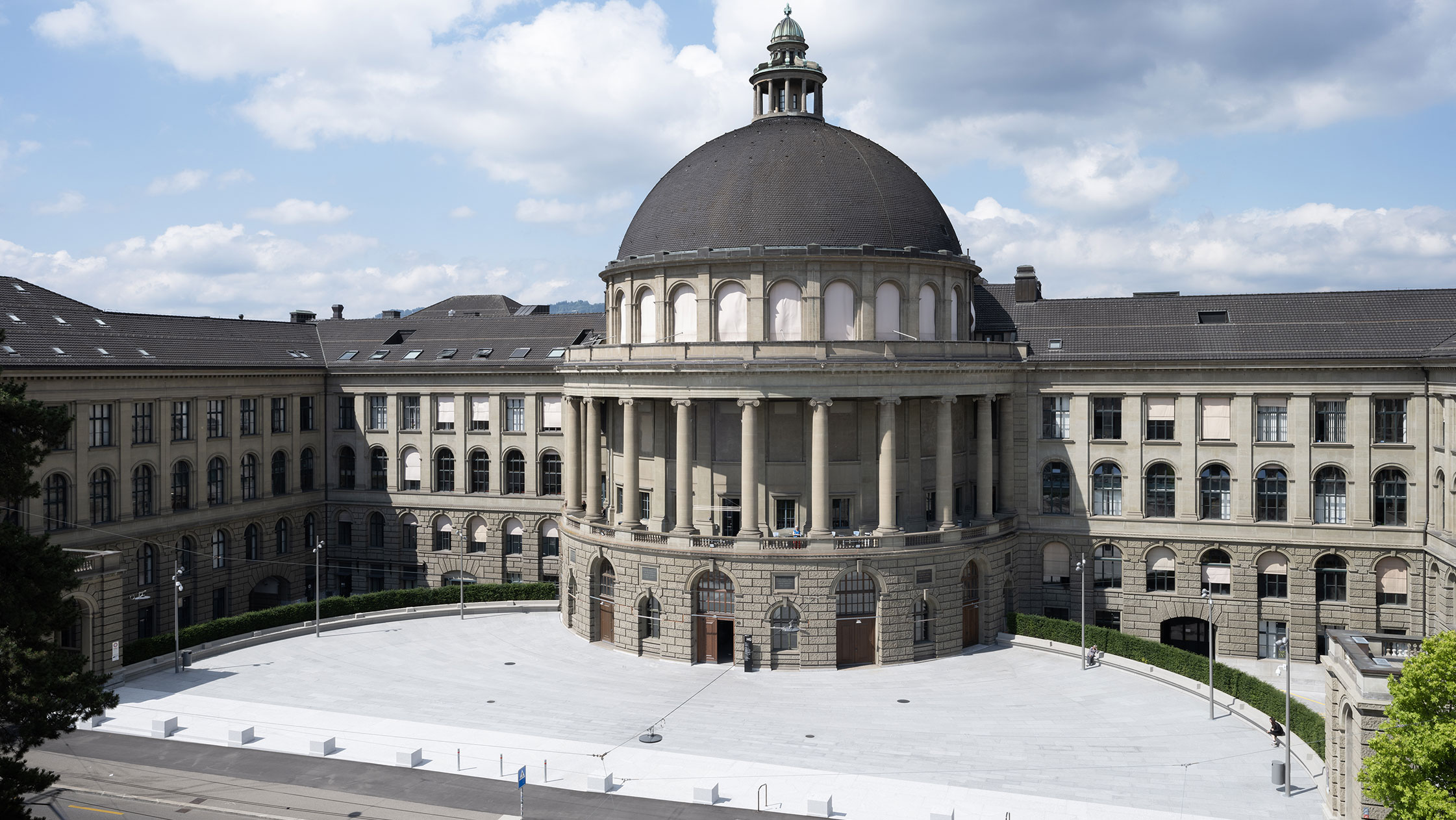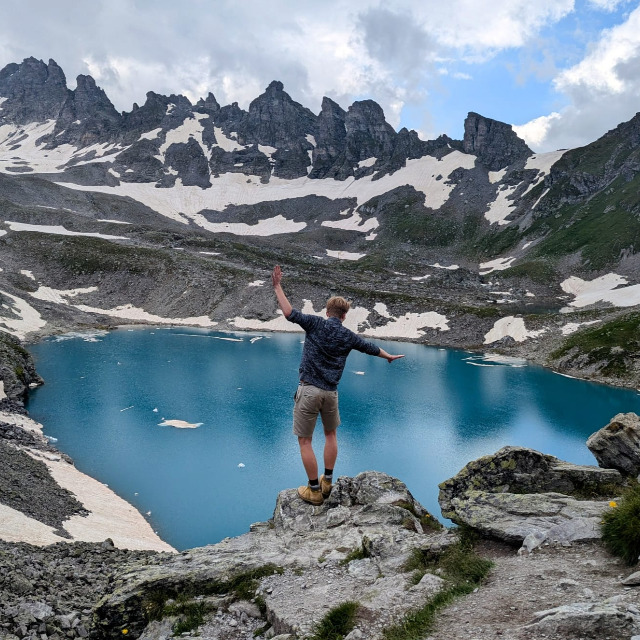getting startETH
An opinionated guide to life and studies at ETH, mainly for math majors
Common abbreviations and words
Zentrum and Hönggerberg: ETH has two main campuses, one in the city center (“Zentrum”) and one more modern one in a more rural area (“Hönggerberg”) HG: Hauptgebäude, this big building in Zentrum where most math lectures are:

CAB: Building of the computer scientists in Zentrum:

CS: Computer Science aka Informatik vvz: Vorlesungsverzeichnis, which is the directory of all lectures offered at ETH. Website to explore cool course options CHF: Swiss Franks, the currency in this country
ASVZ
Here you can sign up for a ton of different sports. Note that the way this generally works is that you just sign up for individual sessions instead of, say, for an entire semester, so it is quite low commitment and you can try a ton of stuff. Note that for everything other than SuperKondi you often need to sign up within minutes of the registration window opening. Concrete recommendations:
- SuperKondi: I really, really love SuperKondi. This is essentially an incredibly intensive cardio workout with 50 - 200 people simultaneously doing the same exercises to quite good music. The peer pressure of a hundred people doing the workout properly also results you pushing yourself really hard. It is incredibly exhausting and fun while doing it and I always feel amazing afterwards.
- Underwater Hockey: I only tried this once, but the people there were incredibly nice and welcoming and it is actually a quite cool sport. They have beginner sessions in the second and third week of the semester
- Badminton
Lockers in HG
The math library has free lockers which you can book for a semester. They are given out on a first come, first served basis, so sign up for them in the first week if you really want one. Also note that the math library is not open on weekends. If you want a locker that you can use on the weekends, get one from the ETH library in the H floor of HG.
Lunching people
This is just general advice: If you meet someone interesting or even overhear a PhD student talking about some topic that sounds really exciting, nicely ask them whether they might have time to eat lunch together with you. All the most interesting things I have done over the last two years came to me through inviting interesting people I only tangentially knew to lunch! Do it, even if it seems scary, it gets much easier with practice - I somehow got sufficiently confident with it that I invited a Nobel laureate I met in the train in French even though I do not really speak French
Switching majors
You can switch completely freely between any major other than medicine in the first two weeks. After that, it will be incredibly annoying and you will probably lose a semester or a year of work. Except if you are switching between specific majors such as maths & physics, which is possible with very little effort the very end of your first year.
Grades
This might be a hot-take, but while some exams are certainly are not easy, I felt like I never once got a worse grade than I think I deserved. Concretely, this means that it is in my opinion very, very hard to fail a class without big warning signs during the semester.
Colloquia and special lectures
There are a ton of cool events at ETH, many of which are not advertised to you super well, especially if they are organized another department. I think colloquiums are not only an interesting way to see what more advanced material is interesting to you, but they are also an amazing way to get to know interesting people with similar interests. Some concrete recommendations for cool sources of events, though you should definitely invest time in finding some yourself:
- Data, Algorithms, Combinatorics, and Optimization (DACO)
- Zurich Undergraduate Colloquium in Mathematics and Physics
- Various lecture series like Wolfgang Pauli Lectures or the Karl Brunner Lecture
Courses
Every course you take gives you a certain amount of credit points (KPs). You need 180 KP to get your Bachelor’s degree. 102 come from fixed subjects in the first two years, but for the rest you have quite a lot of freedom. Concretely, you need to fill up a certain amount of credit points in some categories of subjects, namely: Ergänzungfächer: There are some really cool default options. If you have a good reason for it and are motivated to take a challenging course, also in CS or physics, you can try to submit a “Request for Recognition of External Courses / Study Achievements” to get credits for them Wahlfächer: The intention here is that you take advanced courses in the last year, but again, if you have a good reason and are very motivated, you can apply to get a different course from most departments accredited from any here Kernfächer + Wahlpflichtfächer: I think here it is much harder to get other stuff accredited, but there are quite a lot of options and they are really cool
Also look at this document for details
Also note that you can take absolutely any classes at ETH on the side. So if you see a really cool course, you can generally speaking just take it even if you can’t use it sensibly in any category or if you technically lack some prerequisites, which is really cool in my opinion. There is the following unofficial website for course reviews: https://n.ethz.ch/~lteufelbe/coursereview/all.php. Please add reviews of courses you took because I think this is actually a super valuable resource for students and for some reason not provided by ETH itself
Here some slightly niche courses I found interesting: Neuromorphic Engineering I: Incredibly cool course in which you learn how to design electrical circuits that functionally resemble biological neural networks. For example, you drive a transistor in between the voltages at which it would normally block current and allow current to freely flow to let some current through. This allows you to do sort of analogue computing with normal hardware instead of using binary states to do exact computations. Really cool but incredibly time-consuming as you actually get to experiment with the transistors in lab sessions and half the people taking the course are in their electrical engineering master.
Models of computation: A small, very neat course on different models for things which can compute stuff. Not super applicable but pretty and not super hard
Dynamical Systems and Ergodic Theory: Amazing, quite challenging course on a really cool topic. You got ridiculously general results and, if you in your second year, also some explore cool results from measure theory, probability theory, functional analysis and even a little topology.
Public transport
A delay of more than two minutes might happen once every one or two years even when you use public transport in Switzerland quite actively, which is really nice. Also public transport extends quite well into really remote places as well, which is great
There are the following price reductions available for people under 25:
- Halbtax: 100 CHF per year to reduce most fares by around 50%. If you use public transport even just a bit, this is a no-brainer
- GA Night: 100 CHF per year to use all public transport for free after 7 p.m.
- Friends Day Pass for Youth: A day card for three or four people for 80 CHF. This is an amazing deal for organizing things like hikes. Note though that
One hike I can really, really recommend with this is the “5-Seen-Wanderung” in Pizol. The train takes just over an hour from Zurich and the views are absolutely stunning. Note that you do have to pay extra for the Gondolas, though there is a significant price reduction if you have a Halbtax or a Friends Day Pass.

Do you have suggestion for what I completely forgot to write here? Write the paragraph you would like to see added here, send me a mail and I can add it!